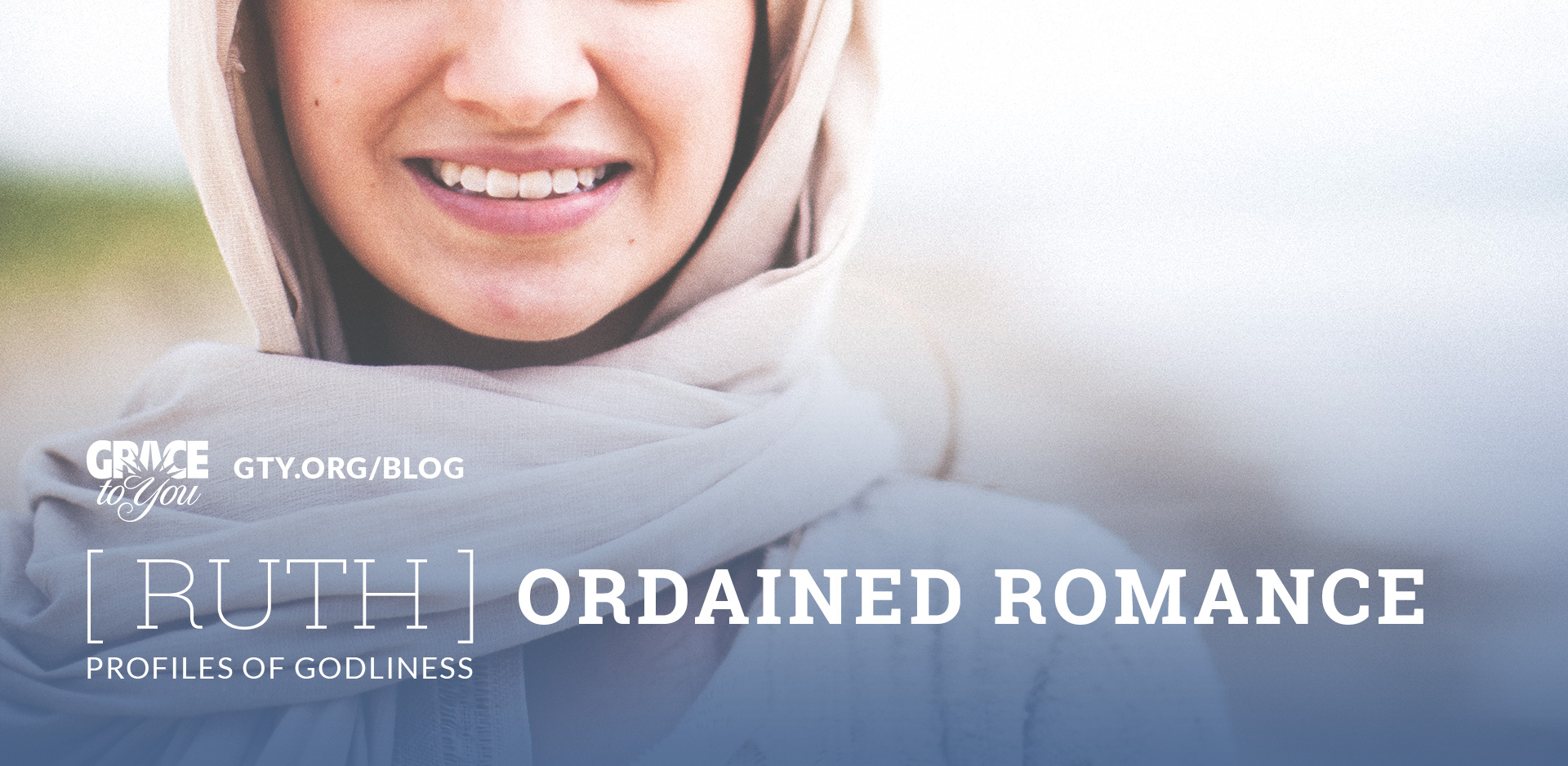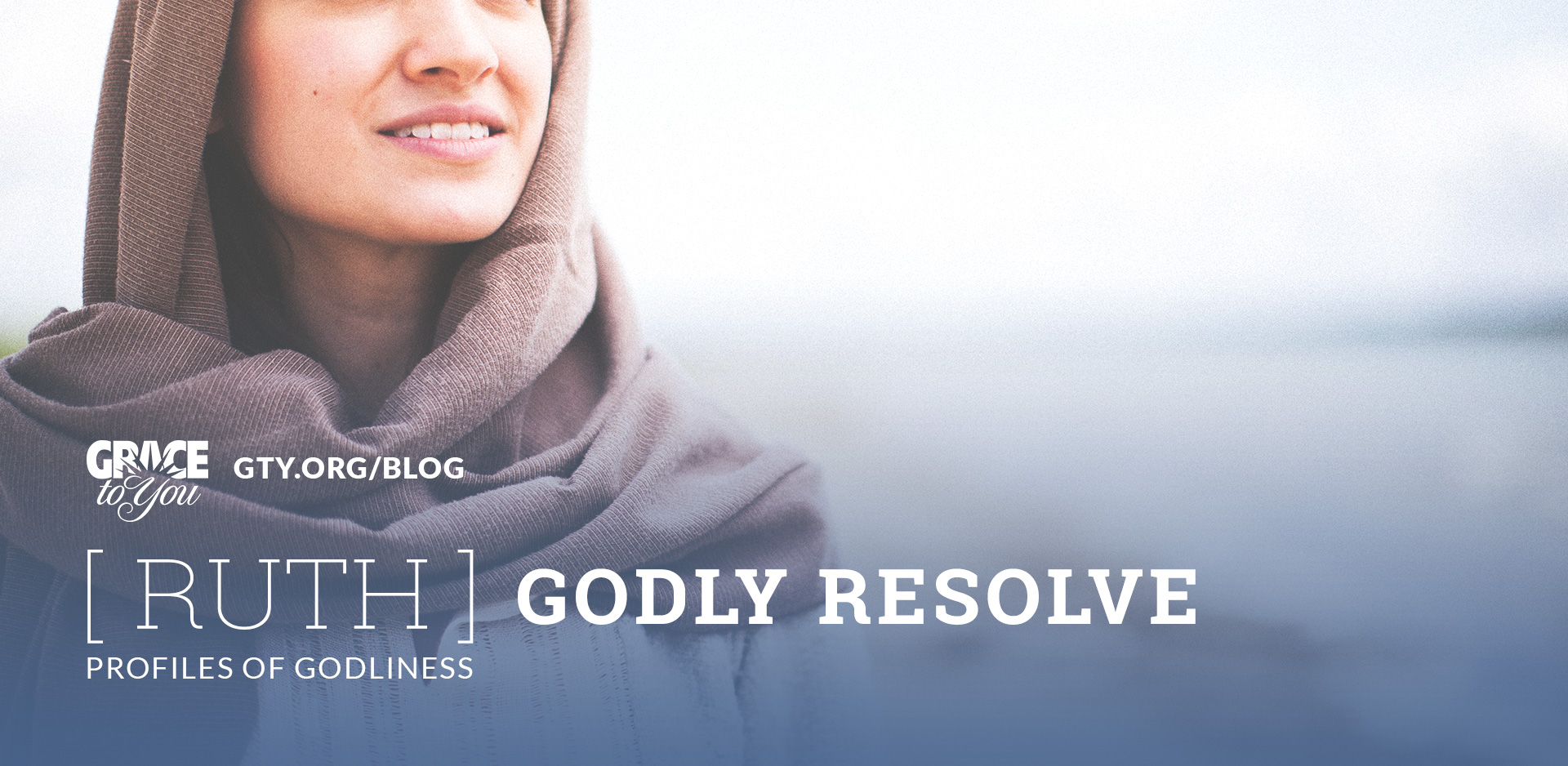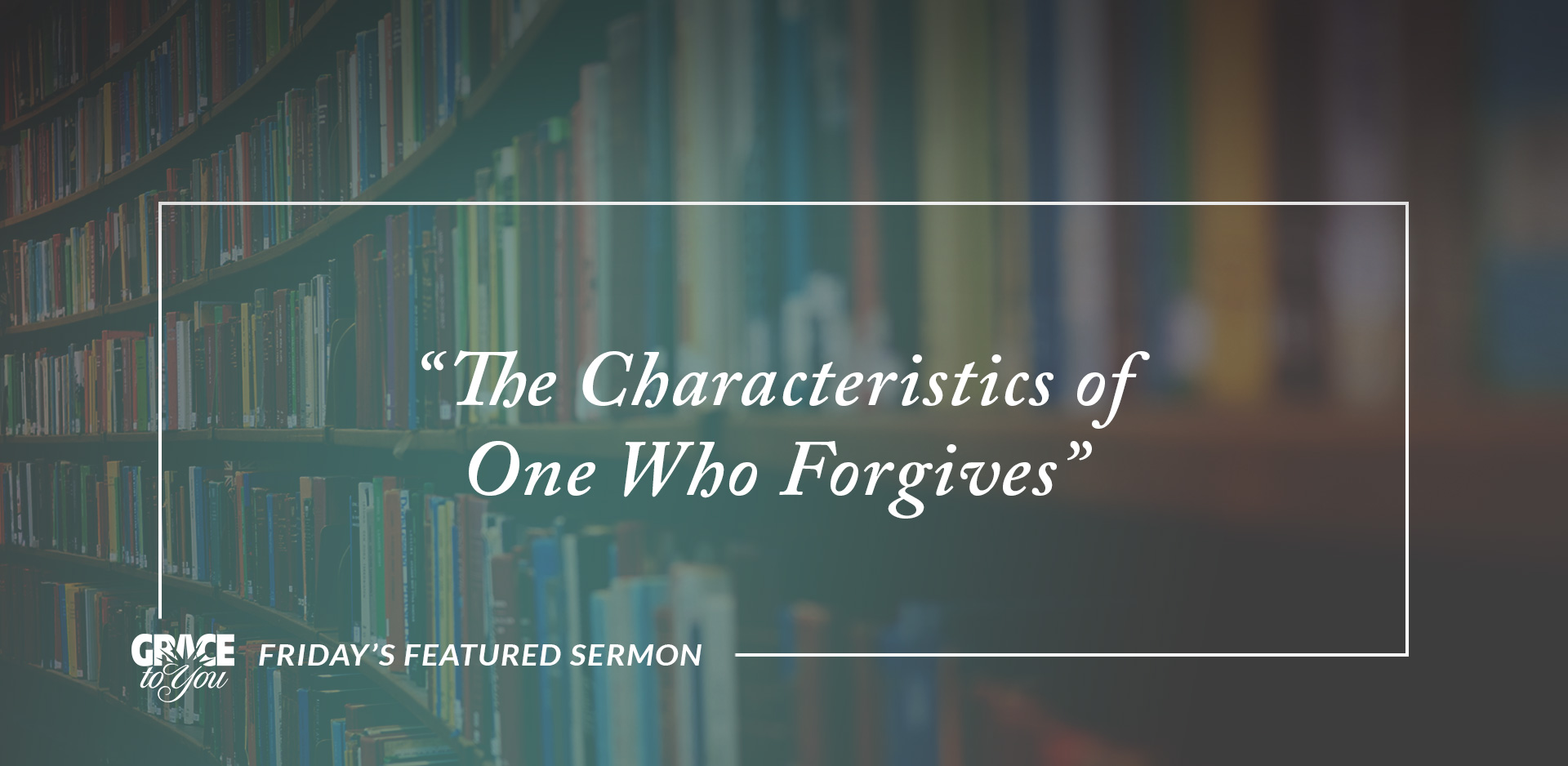Ruth: Ordained Romance
Thursday, February 16, 2017
From a Jewish perspective, Ruth wasn’t a good candidate for adoption into the nation of Israel. An impoverished widow from the pagan nation of Moab was likely seen as someone to avoid or perhaps even deport. But the providence of God isn’t bound by human logic or perception.
As a matter of survival in Israel, Ruth gathered leftover grain from the fields of a man—Boaz—who turned out to be a close relative of her deceased Israelite husband. Moreover, Boaz looked on Ruth’s plight with compassion and kindness.
Boaz seemed smitten with Ruth from the moment they met. He invited her to eat with his workers at mealtime and personally ensured that she had enough to be satisfied (Ruth 2:14–16). He instructed his workers to permit her to glean among his sheaves, and he even encouraged them to let grain fall purposely from the bundles for her sake. Thus he lightened the load of her labor and increased its reward.
Ruth nonetheless continued to work hard all day. “She gleaned in the field until evening. Then she beat out what she had gleaned, and it was about an ephah of barley” (Ruth 2:17). That was a full half bushel, approximately enough to sustain Ruth and Naomi for five days or more–about four times as much as a gleaner could hope to gather on a typical good day. Ruth took the grain, as well as some leftover food from lunch, and gave it to Naomi.
The Kinsman-Redeemer
When Ruth told her the man who had been her benefactor was named Boaz, Naomi instantly saw the hand of God in the blessing. “May he be blessed of the Lord who has not withdrawn His kindness to the living and to the dead! . . . The man is . . . one of our closest relatives” (Ruth 2:20).
The Hebrew word translated “one of our closest relatives” is goel. The goel was a relative who came to the rescue. The word goel includes the idea of redemption, or deliverance. In fact, in order to express the idea more perfectly in English, Old Testament scholars sometimes speak of the goel as a “kinsman-redeemer.” In Scripture, the word is sometimes translated as “redeemer” (Job 19:25) and sometimes as “avenger” (Numbers 35:12).
A goel was usually a prominent male in one’s extended family. He was the official guardian of the family’s honor. If the occasion arose, he would be the one to avenge the blood of a murdered relative (Joshua 20:2–9). He could buy back family lands sold in times of hardship (Leviticus 25:23–28). He could pay the redemption-price for family members sold into slavery (Leviticus 25:47–49).
Furthermore, if he was eligible to marry he could revive the family lineage when someone died without an heir. The goel could do this by marrying the widow and fathering offspring who would inherit the name and the property of the one who had died. This was known as the law of levirate marriage (cf. Deuteronomy 25:5–10).
The Old Testament places a great deal of emphasis on the role of the goel. There was a significant redemptive aspect to this person’s function. Every kinsman-redeemer was, in effect, a living illustration of the position and work of Christ with respect to His people: He is our true Kinsman-Redeemer, who becomes our human Brother, buys us back from our bondage to evil, redeems our lives from death, and ultimately returns to us everything we lost because of our sin.
Boaz would become Ruth’s goel. He would redeem her life from poverty and widowhood. He would be her deliverer—and Naomi grasped the potential of this glad turn of events the very moment she learned it was Boaz who had taken an interest in Ruth. He was not only a kinsman; he had the means to be a redeemer too. Naomi strongly encouraged Ruth to follow Boaz’s instructions and stay exclusively in his fields. Ruth did this until the end of the harvest season (Ruth 2:21–23).
A Devised Marriage
Naomi saw it as her duty as mother-in-law to seek long-term security for this faithful Moabite girl who had so graciously proven her loyalty, generosity, diligence, and strength of character throughout the hot and difficult harvest season. In a culture where arranged marriages were the norm, this meant doing what she could to orchestrate a marriage between Ruth and Boaz.
Naomi clearly had an intuition about Boaz’s interest in Ruth. Her scheme was bold and utterly unconventional. If Naomi’s plan had been known in advance by people in the community, the propriety police certainly would have been up in arms. Her plan, in essence, was for Ruth to propose marriage to Boaz! She told Ruth:
Wash yourself therefore, and anoint yourself and put on your best clothes, and go down to the threshing floor; but do not make yourself known to the man until he has finished eating and drinking. It shall be when he lies down, that you shall notice the place where he lies, and you shall go and uncover his feet and lie down; then he will tell you what you shall do. (Ruth 3:3–4)
By the custom of the time, this would indicate Ruth’s willingness to marry Boaz. In accordance with Naomi’s instructions, Ruth “came secretly, and uncovered his feet and lay down” (Ruth 3:7). Boaz was so fatigued that he did not notice her until he awakened at midnight and was startled to find a woman lying at his feet.
He said, “Who are you?”
She answered, “I am Ruth, your maid. So spread your covering over your maid, for you are a [goel]” (Ruth 3:9). Ruth was borrowing language from the blessing Boaz had given her (Ruth 2:12). This was, in effect, a marriage proposal.
This came as an overwhelming and unexpected blessing to Boaz. He said:
May you be blessed of the Lord, my daughter. You have shown your last kindness to be better than the first by not going after young men, whether poor or rich. Now, my daughter, do not fear. I will do for you whatever you ask, for all my people in the city know that you are a woman of excellence. Now it is true I am a close relative; however, there is a relative closer than I. Remain this night, and when morning comes, if he will redeem you, good; let him redeem you. But if he does not wish to redeem you, then I will redeem you, as the Lord lives. Lie down until morning. (Ruth 3:10–13)
Scripture doesn’t identify the man who was Naomi’s actual next of kin. But Boaz knew immediately who it was, and he knew that custom required him to defer to this other relative. He explained the situation to Ruth, swore to her his own willingness to be her goel if it were possible, and urged her to remain at his feet through the night.
Nothing immoral occurred, of course, and Scripture is clear about that. But Boaz, being protective of Ruth’s virtue, awoke her and sent her home just before dawn. He gave her a generous portion of grain as a gift for Naomi, saying, “Do not go to your mother-in-law empty-handed” (Ruth 3:17).
Boaz went immediately to the city gate and found Naomi’s true next of kin. The two of them sat down in the presence of ten city elders and negotiated for the right to be Ruth’s goel.
As long as Elimelech had no heirs, the property he and Naomi had sold to pay their debts would automatically become the permanent possession of anyone who acted as Naomi’s goel by redeeming her property. This made the prospect extremely appealing.
Naomi’s next of kin was initially keen to redeem the property (Ruth 4:4). But then Boaz explained that there was a catch. While Elimelech had no surviving heir, the man who would have been his rightful heir (Mahlon) had left a widow. Therefore, Boaz explained, “On the day you buy the field from the hand of Naomi, you must also acquire Ruth the Moabitess, the widow of the deceased, in order to raise up the name of the deceased on his inheritance” (Ruth 4:5).
This changed the situation. Because if Ruth did remarry someone under the principle of levirate marriage, and she produced any heir in Mahlon’s name, rights to Elimelech’s land would automatically pass to Ruth’s offspring. The only way to eliminate that risk would be to marry Ruth. The unnamed close relative was either unable or unwilling to marry Ruth. And he didn’t want to take an expensive risk so he offered the redemption rights to Boaz rather than jeopardize his own children’s inheritance (Ruth 4:6). Boaz said to the elders and all the people:
You are witnesses today that I have bought from the hand of Naomi all that belonged to Elimelech and all that belonged to Chilion and Mahlon. Moreover, I have acquired Ruth the Moabitess, the widow of Mahlon, to be my wife in order to raise up the name of the deceased on his inheritance, so that the name of the deceased will not be cut off. (Ruth 4:9–10)
Everyone loves a good love story, and the people of Bethlehem were no exception. As word got out about the unusual transaction taking place in the city gate, the inhabitants of the city began to congregate. They pronounced a blessing on Boaz and his bride-to-be:
The Lord make the woman who is coming into your home like Rachel and Leah, both of whom built the house of Israel; and may you achieve wealth in Ephrathah and become famous in Bethlehem. Moreover, may your house be like the house of Perez, whom Tamar bore to Judah, through the offspring which the Lord will give you by this young woman. (Ruth 4:11–12)
A Blessed Lineage
The blessing proved to be prophetic. Boaz and Ruth were married, and the Lord soon blessed them with a son. At the birth of this child, the women of Bethlehem gave a blessing to Naomi as well:
Blessed is the Lord, who has not left you without a redeemer today, and may his name become famous in Israel. May he also be to you a restorer of life and a sustainer of your old age; for your daughter-in-law, who loves you and is better to you than seven sons, has given birth to him. (Ruth 4:14–15)
All of that came true as well. As verse 17 explains, “The neighbor women gave him a name, saying, ‘A son has been born to Naomi!’ So they named him Obed. He is the father of Jesse, the father of David.” In other words, Ruth was David’s great-grandmother. Moreover, she actually contributed to the lineage through which Christ the Messiah would come (Matthew 1:5).
That is how Ruth, a seemingly ill-fated Moabite woman whose loyalty and faith had led her away from her own people and carried her as a stranger into the land of Israel, became a mother in the royal line that would eventually produce that nation’s first great king. Her best-known offspring would be Abraham’s Seed and Eve’s hoped-for Deliverer.
Ruth is a fitting symbol of every believer, and even of the church itself—redeemed, brought into a position of great favor, endowed with riches and privilege, exalted to be the Redeemer’s own bride, and loved by Him with the profoundest affection. That is why the extraordinary story of her redemption ought to make every true believer’s heart resonate with profound gladness and thanksgiving for the One who, likewise, has redeemed us from our sin.
![]()
(Adapted from Twelve Extraordinary Women.)



